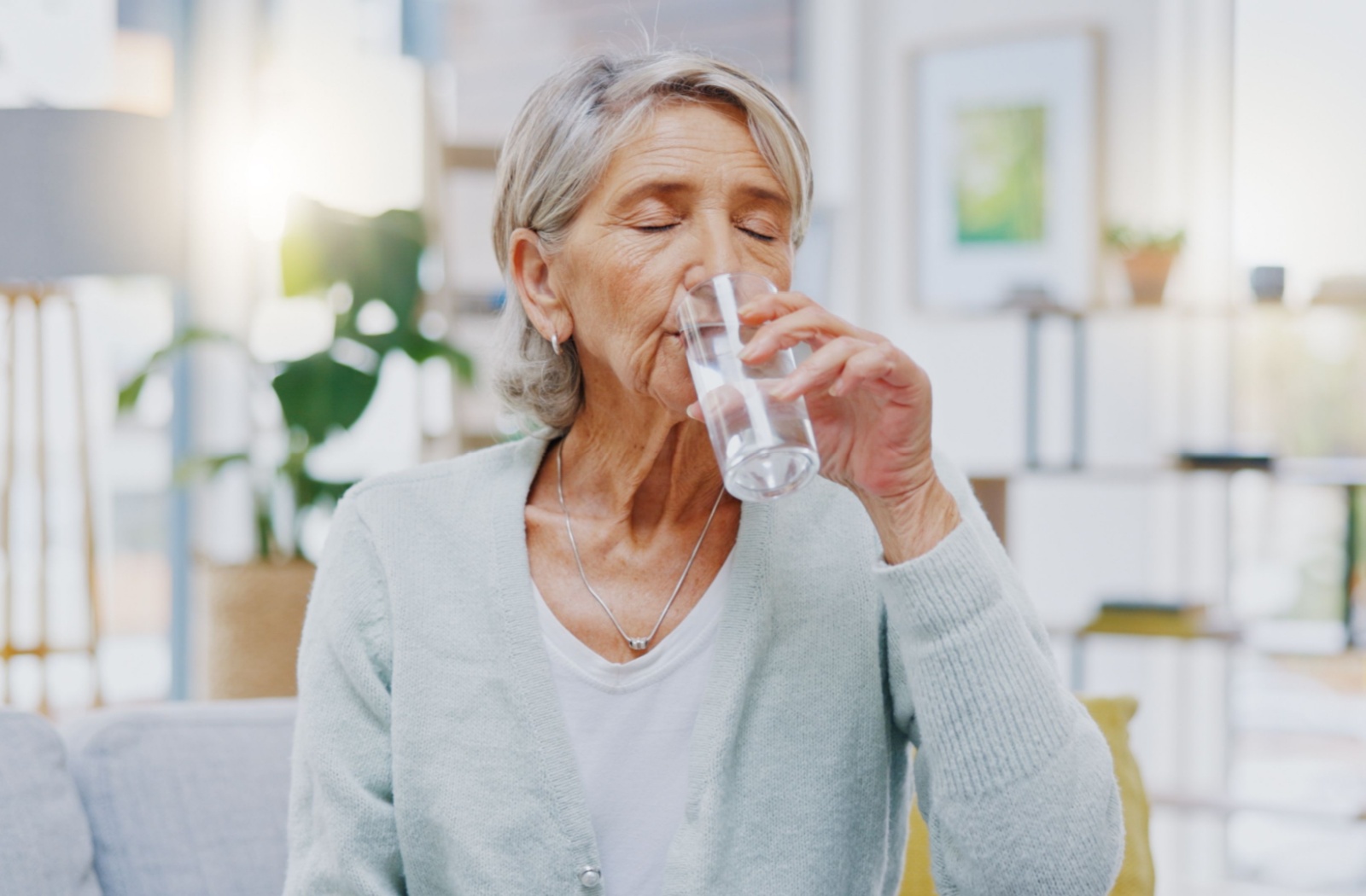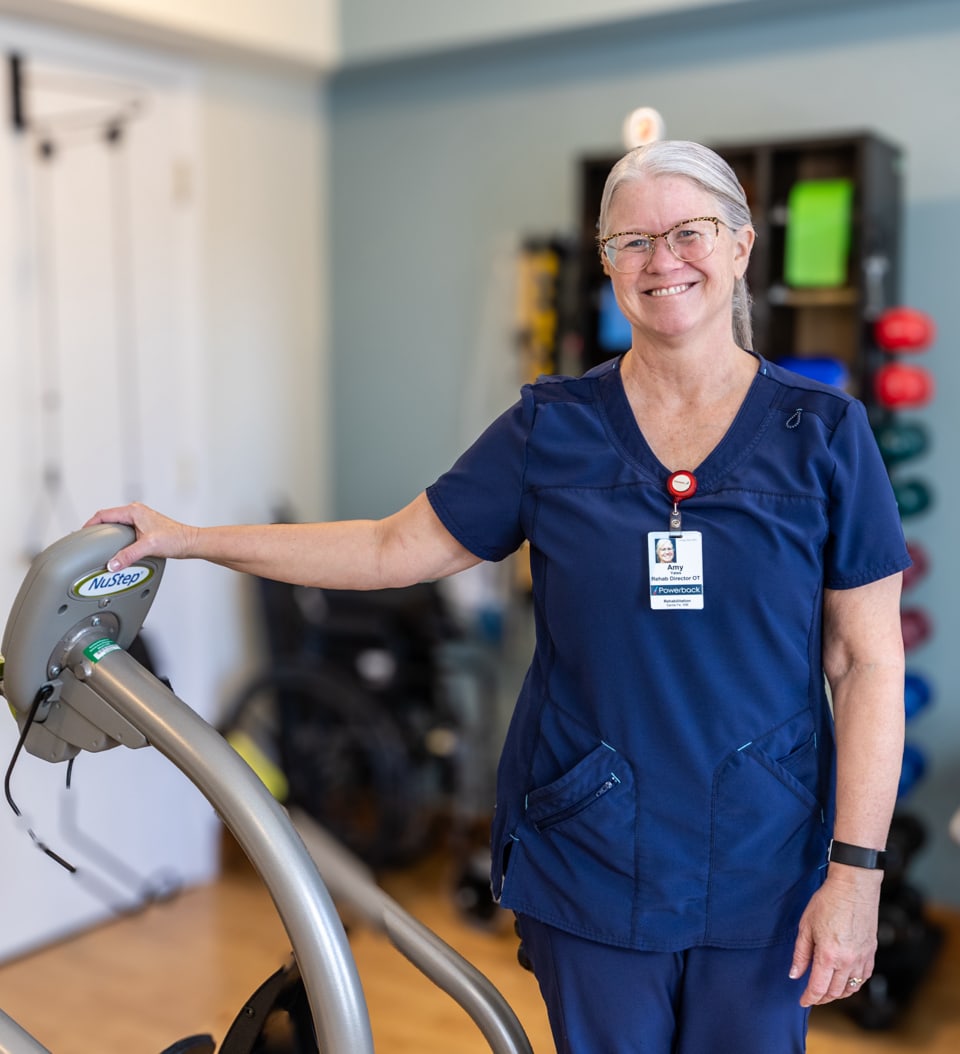You may have heard it before, but it remains true: hydration is key to feeling your best. Staying properly hydrated is essential for everyone, but it becomes even more important as we get older and dehydration becomes a serious concern.
Drinking enough water quenches thirst, but its effects go far beyond just that. Hydration is essential for seniors because it supports vital bodily functions, promotes overall health, and helps prevent age-related complications.
Whether you’re ensuring you always have a water bottle nearby or being more conscious about eating hydrating foods, you’re taking simple yet powerful steps to support your overall well-being.
Hydration’s Role in Senior Health
When it comes down to it, water is vital for nearly every function in the body. From aiding digestion to regulating body temperature, staying hydrated helps the body operate smoothly. For seniors, maintaining hydration is especially important because age-related changes reduce the body’s efficiency in conserving water.
When water intake drops, dehydration can lead to fatigue, confusion, and discomfort, often interfering with the ability to enjoy everyday activities.
Why Dehydration Risk is Higher for Seniors
Seniors face unique challenges in staying hydrated. These factors make older adults more vulnerable to dehydration compared to younger people:
- Reduced thirst sensation: Thirst naturally diminishes with age, making it harder for seniors to recognize they need water.
- Medications: Many common prescriptions, like diuretics and laxatives, can increase fluid loss.
- Changes in kidney function: Aging kidneys are less efficient at conserving water.
- Mobility challenges: Physical limitations can make it difficult for seniors to grab a drink when they need it.
Understanding these risks makes it clear why we should all be more proactive about helping seniors stay hydrated and healthy throughout the day.
Recognizing Signs of Dehydration in Seniors
Dehydration can sometimes present subtly, but being aware of its signs means you can address it early. Be on the lookout for the following symptoms in your loved ones:
- Dry mouth or cracked lips
- Dark yellow urine or reduced urination
- Fatigue or confusion
- Sunken eyes or dry skin
- Dizziness or headaches
If you notice these signs, take steps to address hydration immediately. For severe symptoms, such as extreme fatigue or prolonged confusion, always consult a healthcare professional for their safety.
Hydration’s Impact on Common Senior Health Conditions
When managing health conditions like diabetes, kidney disease, or high blood pressure, proper hydration plays an even more critical role. Here’s how water supports specific health conditions:
- Diabetes: Drinking enough water helps flush excess sugar from the bloodstream.
- Hypertension: Proper hydration supports healthy blood pressure levels.
- Kidney health: Staying hydrated reduces strain on the kidneys, which helps maintain their functionality.
For personalized hydration strategies, always consult a healthcare provider, especially when your loved one has specific medical conditions.

Supporting Daily Activities with Proper Hydration
Hydration doesn’t just prevent complications; it supports overall quality of life. Staying hydrated can improve energy levels, digestion, and cognitive clarity. Additionally, proper hydration benefits joint health, making mobility more comfortable and enjoyable.
When seniors feel their best, they can devote time and energy to what matters most to them, whether it’s staying active with their favorite hobbies or spending time with family and friends.
Easy Ways to Help Seniors Stay Hydrated
Encouraging hydration doesn’t have to feel overwhelming. These simple tips can make drinking water a natural part of the day:
- Keep water nearby: Provide a lightweight, easy-to-handle, reusable bottle for easy access throughout the day.
- Offer smaller portions: Smaller, more frequent servings of water can feel less daunting than large glasses.
- Track intake: Use a journal or app to help build awareness and foster positive hydration habits.
- Make it flavorful: Add slices of fruit, cucumber, or mint to water for a refreshing and tasty twist.
- Set gentle reminders: Use phone notifications or alarms as hydration reminders.
By incorporating these steps into daily life, seniors can stay hydrated without much effort.
Using Nutrition to Boost Hydration
Hydration isn’t limited to water. Fresh fruits and vegetables with high water content are excellent for supporting fluid intake. Adding water-rich foods to meals can make hydration both delicious and nutritious.
Consider these options as part of the diet plan for seniors:
- Cucumbers
- Watermelon
- Oranges
- Strawberries
- Zucchini
Additionally, soups, broths, and yogurt can also contribute to daily hydration while offering excellent nutritional benefits.
Helping Seniors Thrive in Every Way
Health and happiness often begin with the small steps we take every day. By supporting hydration and offering meaningful solutions like water-rich foods, frequent reminders, or personalized strategies, you can help the seniors in your life stay healthy, active, and happy.
If you’re searching for a senior living community where the well-being and quality of life of your loved one are prioritized, we invite you to visit us at Kingston Residence of Santa Fe. Our vibrant environment fosters not only fun and friendships, but also supports safety and comfort for every resident.
Book a tour today and see why so many families trust us with their loved ones. We can’t wait to welcome you!






